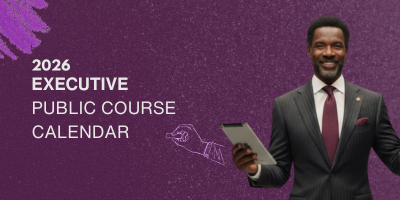How Nigeria Can Evolve NIN into a True Digital Identity
October 2, 2025 Government
Digital identity has become one of the most critical enablers of modern governance. Across the world, governments are accelerating digital service delivery, expanding e-governance platforms, and embedding artificial intelligence into decision-making. Yet, at the center of this transformation lies a simple but profound requirement: every citizen must be verifiably known, securely recognized, and seamlessly connected to the services they need.
For Nigeria, the journey toward a unified and citizen-centric digital identity has been underway for more than a decade. The National Identity Number (NIN) has become the cornerstone of this effort, serving as a unique identifier for millions of Nigerians. However, despite progress, challenges persist fragmented systems across ministries, agencies, and departments; uneven levels of digital literacy; and infrastructure limitations that make universal adoption difficult.
The situation is not unique to Nigeria. Countries across Africa, Asia, and even parts of Europe are grappling with similar issues. Governments want secure, interoperable, and inclusive digital ID frameworks that protect individual privacy while simplifying service access across borders. The global lesson is clear: a digital ID must go beyond being a number in a database. It must become a functional tool that citizens can use in their everyday lives whether applying for healthcare, receiving subsidies, or conducting business across regions.
The Problem of Fragmentation
At present, Nigeria’s digital identity ecosystem is fragmented. Citizens often maintain multiple identifiers across institutions tax numbers, voter cards, bank verification numbers, driver’s licenses, all of which operate in silos. This not only increases the cost of governance but also creates inefficiencies for both citizens and the state. For example, applying for government benefits may still require repetitive data entry, verification delays, or cross-checks that consume valuable administrative resources.
Globally, advanced models of digital identity have focused on consolidation and interoperability. The principle is simple: “one citizen, one ID,” operational across multiple platforms and ministries. In India, for example, Aadhaar has been integrated into a wide range of public and private services, enabling millions to access welfare programs, open bank accounts, and authenticate transactions instantly. In the European Union, digital identity wallets are being piloted to enable secure cross-border authentication, ensuring that a citizen of one member state can access services in another.
Toward a Federated Identity System
For Nigeria, the viable and beneficial path forward lies in adopting a federated model of digital identity one that balances central consolidation with decentralized access. This means a citizen could use their NIN or a secure digital wallet to authenticate across ministries and service providers, but without creating a single monolithic database vulnerable to misuse or breaches. Privacy-by-design principles must guide this model: strong data protection rules, citizen consent mechanisms, and redress channels in case of errors or abuses. Mobile-based digital wallets offer an especially promising approach. With smartphone penetration increasing, Nigerians could use secure apps that carry digital versions of their IDs, linked to biometrics and supported by strong authentication protocols.
Enhancing Trust Through Zero-Trust
An often-overlooked component of digital identity is the need for trust, not only between the citizen and the government but also within the government itself. Ministries, departments, and agencies must adopt zero-trust access models. This means civil servants and contractors are granted only the minimum level of access needed to perform their duties, with continuous verification and monitoring in place. By embedding zero-trust principles into identity management, Nigeria can reduce fraud, prevent misuse, and strengthen confidence in digital government platforms.
Opportunities and Risks
The advantages of a consolidated and interoperable digital identity system are significant. Citizens benefit from faster and fairer service delivery – prefilled forms, unified access to benefits, and reduced bureaucracy. The government gains better auditability, lower fraud rates, and improved policy outcomes through accurate, timely data.
Yet, risks must be acknowledged. Weak governance could open the door to surveillance abuses, misuse of biometric data, or vendor lock-in if proprietary systems dominate the ecosystem. Nigeria must therefore establish clear regulatory frameworks, enforce open standards, and ensure that privacy and human rights are safeguarded from the outset.
Nigeria’s Path Forward
To transition from NIN as a static identifier to a dynamic, citizen-centric digital identity system, Nigeria should prioritize three actions:
- Interoperability Mandates: Enforce open standards across ministries and service providers, ensuring seamless: cross-platform usage.
- Citizen-Centric Wallets: Deploy mobile and offline-friendly digital wallets that meet international standards while accommodating local realities.
- Governance and Redress: Strengthen privacy legislation, establish independent oversight, and create citizen-friendly redress processes for identity disputes.
Ultimately, the goal is not just to create a number that verifies who someone is but to build a system that enables opportunity, fairness, and trust. By learning from global best practices while tailoring solutions to Nigeria’s unique challenges, the country can transform its digital identity into a true engine of inclusion and development.
As Nigeria accelerates its digital transformation, the question is no longer whether digital identity is necessary it is how fast and how well it can be implemented to serve every citizen.



